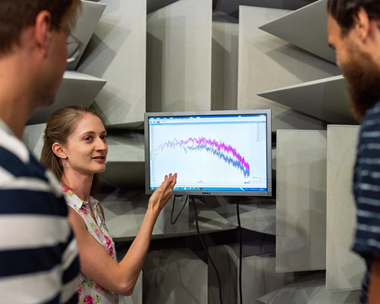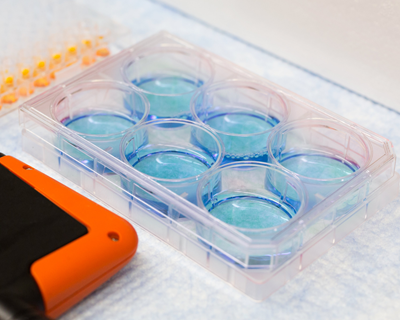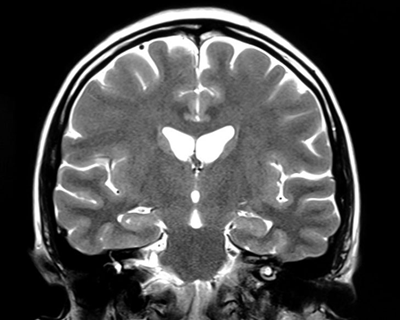Shiley-Marcos Alzheimer's Disease Research Center Cores
Our Cores

We are organized into the following cores that focus on carrying out our multidisciplinary goals and objectives in accordance with our mission.

Clinical Core
The overall objective is to maintain research participants, clinical resources, and clinical data to support research and to assist in the development of new clinical and interdisciplinary research. This core is responsible for performing the annual nursing, neurological, and neuropsychological evaluations of all ADRC participants, as well as refining and evaluating clinical and neuropsychological assessment procedures for accurate identification of MCI and the transition to AD in very mildly impaired subjects. The core also participates in projects with other ADCs and in multicenter therapeutic drug trials for Alzheimer's disease.
Core Leaders: Douglas Galasko, M.D. & Diane Jacobs, Ph.D.

Outreach, Recruitment, and Engagement (ORE) Core
The overall objective is to utilize a multipronged approach to recruit and retain participants for a wide array of research and disseminate information and education about ADRD through outreach efforts and collaborations with the community. The team simultaneously works to provide information about ADRD, resources, and opportunities to participate in research. The core offers free Quality of Life Programs that aim to improve emotional and social support for patients and caregivers. Our staff provide education to the professional healthcare community in the form of lectures, workshops, in-service training, and conferences.
Core Leaders: Guerry M. Peavy, Ph.D. & Sarah Banks, Ph.D.

Neuropathology Core
The overall objective is to maintain a state of the art Alzheimer's brain bank with well-characterized cases, including Mild Cognitive Impairment and Lewy Body disease. Autopsy provides valuable information that can educate and enlighten families, physicians, and researchers, who are working to discover more reliable tests for AD. The results of AD patients who have been followed over time at our ADRC are especially valuable. This research will contribute to our eventual understanding of the chain of events that leads to AD and related dementias.
Core Leaders: Subhojit Roy, Ph.D. & David Coughlin, M.D.

Data Management and Statistics Core (DMSC)
The overall objective is to provide statisticians to collect, store, manage, and analyze data generated by other ADRC components, primarily the Clinical Core. Our team of statisticians provide statistical design and analysis consultation to ADRC investigators and prepare the ADRC database for routine submission to the National Alzheimer's Coordinating Center. They educate investigators, trainees, and junior faculty in the principles and use of statistical analysis methodologies. The DMSC is also responsible for developing new statistical methodologies that apply to the analysis of Alzheimer's disease data.
Core Leaders: Steve Edland, Ph.D. & Jing Jing Zou, Ph.D.

Assessment Innovation Core
The overall objective is to facilitate full integration of the growing, yet underserved Latino population into all aspects of the clinical research environment supported by the Shiley-Marcos ADRC. We will work towards this objective with sensitivity to cultural, linguistic and demographic differences between Latino and non-Latino individuals. The core will work in coordination with the ADRC Outreach, Recruitment and Engagement (ORE) and Clinical Cores to help overcome barriers to Latino participation in Alzheimer's research, which has been disproportionately low to date.
Core Leaders: Tamar Gollan, Ph.D., Zvinka Zlatar, Ph.D., & Hector Gonzalez, Ph.D.

iPSC Core
The Induced Pluripotent Stem Cell (iPSC) Core provides ADRC researchers access to state of the art human cell-based disease modeling strategies from targeted cohorts of subjects participating within the clinical studies of the ADRC. With the understanding that the highest quality of subject-specific cell lines is required to develop innovative cell-based models, the iPSC Core generates, characterizes, and banks primary dermal fibroblasts and iPSCs. Additionally, the iPSC Core provides hands-on training and disseminates protocols and best practices to support researchers within the ADRC, building on NIA Biospecimen Best Practices for iPSCs.
Core Leaders: Jerome Mertens, Ph.D. & Fred Gage, Ph.D.

Biomarkers Core
The overarching goals of the Biomarkers Core are to collect, analyze, store, track and share biofluids (plasma, serum, DNA, and cerebrospinal fluid (CSF)), and brain imaging biomarkers from MRI and PET, while advancing the measurement of standard and novel biomarkers for clinical translational research. This will contribute to the goals of the ADRC by enabling genetic, molecular, and brain structural and biochemical phenotyping of subjects in the Clinical Core. The ADRC and affiliated investigators will apply proposed Amyloid, Tau, and Neurodegeneration (A/T/N) criteria for AD and study novel diagnostic and prognostic biomarkers for AD and ADRD.
Core Leaders: Douglas Galasko, M.D., Paula Desplats, Ph.D., and Emilie Reas, Ph.D.

Administration Core
The Administrative Core is led by the Director, Associate Directors, and Administrator. James Brewer, MD, Ph.D. is the Director and provides overall leadership, with scientific and administrative input from Associate Directors Douglas Galasko, MD, and David Salmon, Ph.D. Emily Little, MPH, is the Administrator and reports directly to Dr. Brewer. Ms. Little is responsible for the administration of Center grants, contracts, finance, operations, human resources, regulatory compliance, and reporting.Director: James Brewer, M.D., Ph.D.
Associate Directors: David Salmon, Ph.D. & Douglas Galasko, M.D.
Administrator: Emily Little, MPH

